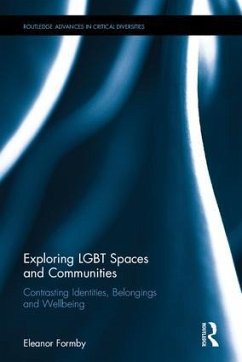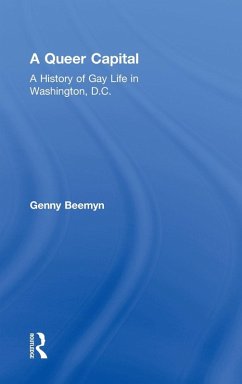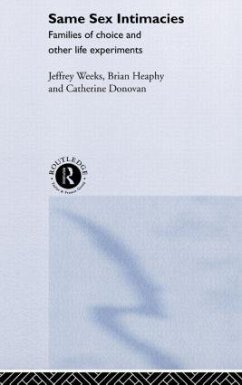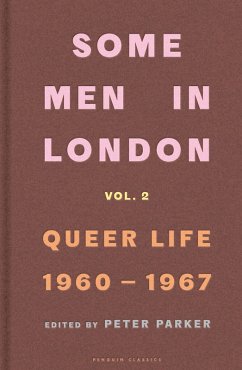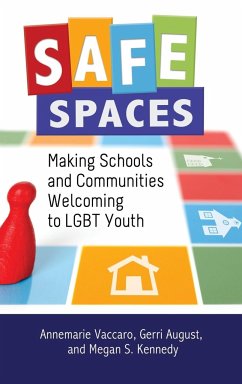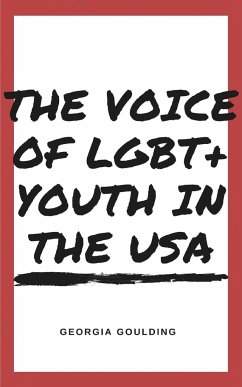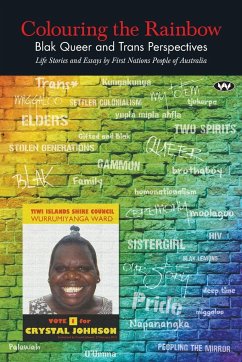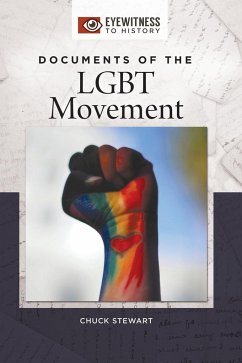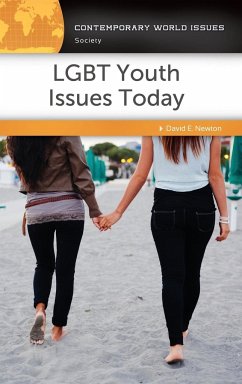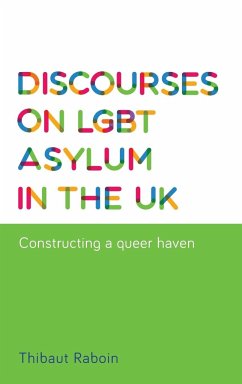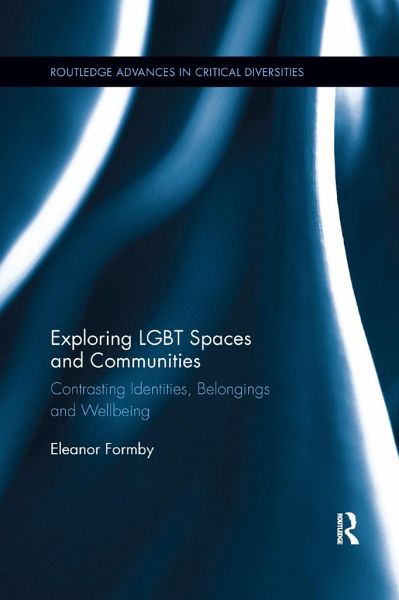
Exploring LGBT Spaces and Communities
Contrasting Identities, Belongings and Wellbeing
Versandkostenfrei!
Versandfertig in 1-2 Wochen
58,99 €
inkl. MwSt.
Weitere Ausgaben:

PAYBACK Punkte
29 °P sammeln!
The phrase 'LGBT community' is often used by policy-makers, service providers, and lesbian, gay, bisexual and trans (LGBT) people themselves, but what does it mean? What understandings and experiences does that term suggest, and ignore? Based on a UK-wide study funded by the Arts and Humanities Research Council, this book explores these questions from the perspectives of over 600 research participants. Examining ideas about community 'ownership'; 'difference' and diversity; relational practices within and beyond physical spaces; imagined communities and belongings; the importance of 'ritual' s...
The phrase 'LGBT community' is often used by policy-makers, service providers, and lesbian, gay, bisexual and trans (LGBT) people themselves, but what does it mean? What understandings and experiences does that term suggest, and ignore? Based on a UK-wide study funded by the Arts and Humanities Research Council, this book explores these questions from the perspectives of over 600 research participants. Examining ideas about community 'ownership'; 'difference' and diversity; relational practices within and beyond physical spaces; imagined communities and belongings; the importance of 'ritual' spaces and symbols, and consequences for wellbeing, the book foregrounds the lived experience of LGBT people to offer a broad analysis of commonalities and divergences in relation to LGBT identities. Drawing on an interdisciplinary perspective grounded in international social science research, the book will appeal to students and scholars with interests in sexual and/or gender identities in the fields of community studies, cultural studies, gender studies, geography, leisure studies, politics, psychology, sexuality studies, social policy, social work, socio-legal studies, and sociology. The book also offers implications for practice, suitable for policy-maker, practitioner, and activist audiences, as well as those with a more personal interest.





